Friday, April 10, 2020
How the spread of coronavirus is testing Africa
from BBC News - Africa https://ift.tt/39XcOz1
via
The PlayStation 5 Will Have a Sweet New Controller
New York ICU nurse sobs after ‘walking into rooms and your patients are dead’ from coronavirus
In a heartbreaking video making its rounds on social media, an ICU nurse working on the frontlines of the COVID-19 pandemic lost her composure and broke down in tears while recalling what it’s been like to see so many of her patients die under her care.
At the end of March, D’neil Schmall moved to New York specifically to help fight the deadly illness. She has been working on a rapid response team operating out of a temporary Central Park hospital dedicated to treating COVID-19 patients.
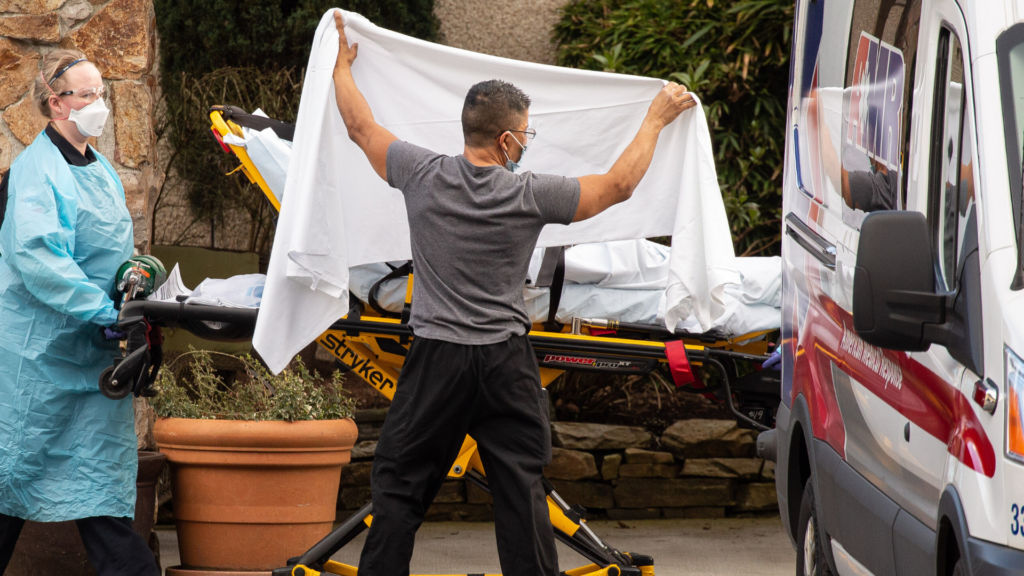
READ MORE: Georgia nurse who quit over COVID-19 has second thoughts
But in the emotional video, the 35-year-old medical worker opened up about the devastation she’s had to bear witness to over the last few weeks. At some points, she sobbed uncontrollably as she confessed to being “tired” of finding her patients dead.
“I just feel there is so much anyone can take,” she recalled while wiping away her tears. “I’m tired of walking into rooms, and your patients are dead. You just walk into a room, and there’s a dead body there. I’m tired of calling families and telling them that news.”
READ MORE: Brooklyn YMCA employee dies of coronavirus
Today was by far the worst shape I’ve ever had. This video was taken after laying in my hotel floor for an hour crying. I think it’s important for ppl to see what we go threw when we get home. *******Update ******After 4-5hrs sleep We’re walking 8-11 miles in a 13-15hrs shift. 5–6 days a week. The Majority of our PPE is made out of plastic like wearing a sweat suit all day. Assignments of 10-16 patients per nurse. ******This video is completely unedited. And taken after the “worst shift” I’ve had since being here. I was only Venting. This video was cathartic. I only posted it because I feel like people should know what we’re going through here. I love my job I LOVE ❤️ what I do! UNDER NO CIRCUMSTANCES AM I LEAVING! But that doesn’t mean frontliners aren’t human and wont be emotional about this experience as well*********I turned the camera on and just started talking whatever came to mind. Im not blaming this on the 🏥 or anyone. The volume of patients is that high. All im asking is for some understanding that I personally take pride in doing a good job. A part of my selfworth is invested in taking care of others. Id rather run myself into the ground trying to do so, then sacrifice patients care. #frontline #nurselife #flattenthecurve #nurse #er #covid_19 #msnbc #todayshow #newyorknews #newyork #goodmorningamerica #frontlinersneedhelptoo* Video Copyright belongs to D’neil Schmall
Posted by D'neil Schmall on Tuesday, April 7, 2020
Schmall who said at the onset of the clip that she had just worked her “worst day” yet, also expressed grief over fellow nurses who had lost their lives while taking care of others battling COVID-19.
“I cried the whole way home, I mean the driver was like, ‘Ma’am are you okay?” shared the former bodybuilder as she plead with viewers to show more compassion during this pandemic. “I don’t think people understand how stressful this job is. I was trained for anything in the world but this is so stressful.”
READ MORE: Maryland grocery clerk with cerebral palsy dies of coronavirus
“Everyone is trying hard, everyone is trying so hard. But we got so much to do. We are humans too,” she reminded them.
She also admitted that she doesn’t feel right venting to mother or her sister, because she doesn’t want to heighten their concern for her safety, adding: “[My mom] never wanted me to come [to New York].”
“I have friends that are nurses and I’m pretty sure that they understand but they are going through the same thing,” she said. “So the end result is you end up crying in your hotel room. Or in the bathroom. There is no one to talk to.”
The post New York ICU nurse sobs after ‘walking into rooms and your patients are dead’ from coronavirus appeared first on TheGrio.
from TheGrio https://ift.tt/2JUStQD
via
Postal Service running ‘out of cash’ and that may hurt African Americans
President Donald Trump seems inclined to let the United States Postal Service die because he believes the agency needs to increase its prices, reported The New York Times.
The COVID-19 crisis has hurt most major industries in the U.S. and the perpetually in debt postal service is no exception. They’ve asked Congress for $89 billion to stay afloat, insisting the agency will run out of money by the end of September if they don’t get a cash infusion.
Trump may not be so eager to help as he has long held the view that the postal service should charge on par with Amazon. Just last week, he rejected a cash bailout.
“They have to raise the prices on these companies who drop thousands of packages on the floor of the post office,” Trump told reporters at the White House on Wednesday. “They ought to do that. I’m pushing them.”
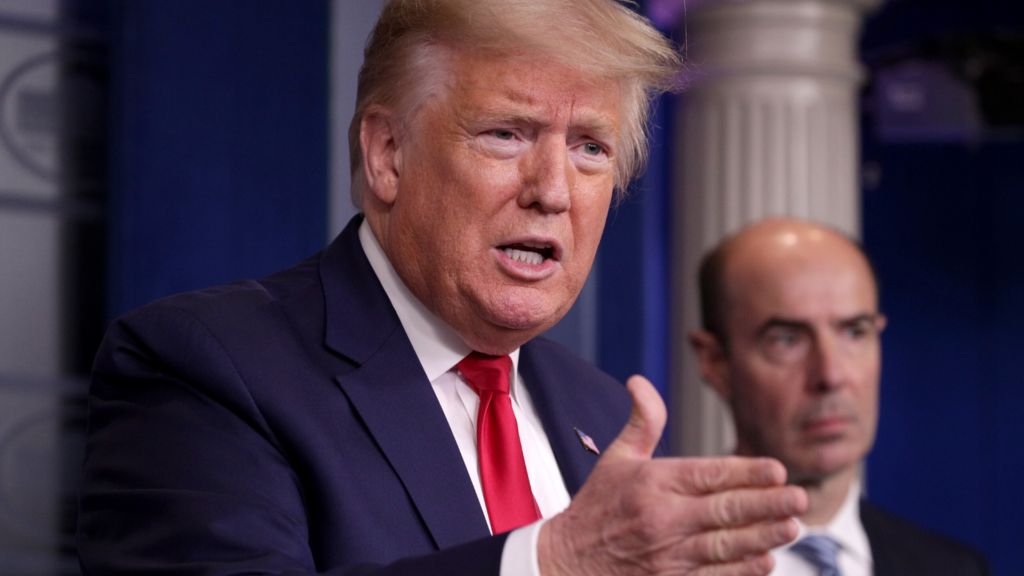
Mark Dimondstein, the president of the American Postal Workers Union which represents more than 220,000 postal workers, argued politics were at play with Trump’s reluctance to get involved.
“At the end of the day, they have an agenda,” said Dimondstein. “Raise prices, reduce worker benefits and reduce services, make it appear more profitable and set it up for sale.”
A progressive response to this pandemic is not possible without USPS.
– Vote by mail.
– More direct payments.
– Rx delivery for isolated seniors and those with disabilities.This isn’t just another squabble.
This is at the core of all we’ve fought for. #SaveThePostOffice
— Rep. Gerry Connolly (@GerryConnolly) April 10, 2020
READ MORE: Trump, Congress weigh more coronavirus stimulus checks for Americans
The postal service is one of the country’s biggest employers. As of 2018, according to Data USA, the agency employs over 330,000 employees with an average salary of $50,000. While 67% of its employees are white, 21% of the agency’s employees are Black.
“At a time when America needs the Postal Service more than ever, the reason we are so needed is having a devastating effect on our business,” postmaster general Megan J. Brennan told The New York Times. “The sudden drop in mail volumes, our most profitable revenue stream, is steep and may never fully recover.”
Brennan told the Times that an expected 50% drop in mail volume since the same time last year could cripple the service, resulting in a reduction of regular mail delivery. A controversial mandate to pre-fund retirement benefits has also caused problems for USPS, one of many moves viewed to cripple the agency and possibly privatize it.
READ MORE: Who gets a stimulus check and who doesn’t, and how should you spend it?

The post office, already on life support, has been reeling as bulk advertisers and others have cut back on their mailings given the realities of the COVID-19 pandemic. Postal workers, like those in warehouse, have been testing positive for the coronavirus. It has led to a reduction in staff across the country, multiple outlets have reported.
Yet the postal service is still considered a place that African Americans can always find an opportunity to work. Public sector jobs have allowed African Americans opportunities in many areas, more so than the public sector has, with African Americans making up more than 20% of the federal workforce, according to the Associated Press.
The postal service has employed African-American workers since Reconstruction. According to Jacobin, former slave William Harvey Carney, who received a Medal of Honor for his actions in the Civil War, was a mail carrier for 30 years. Postal workers were early activists in labor unions, working directly with the NAACP to improve working conditions.
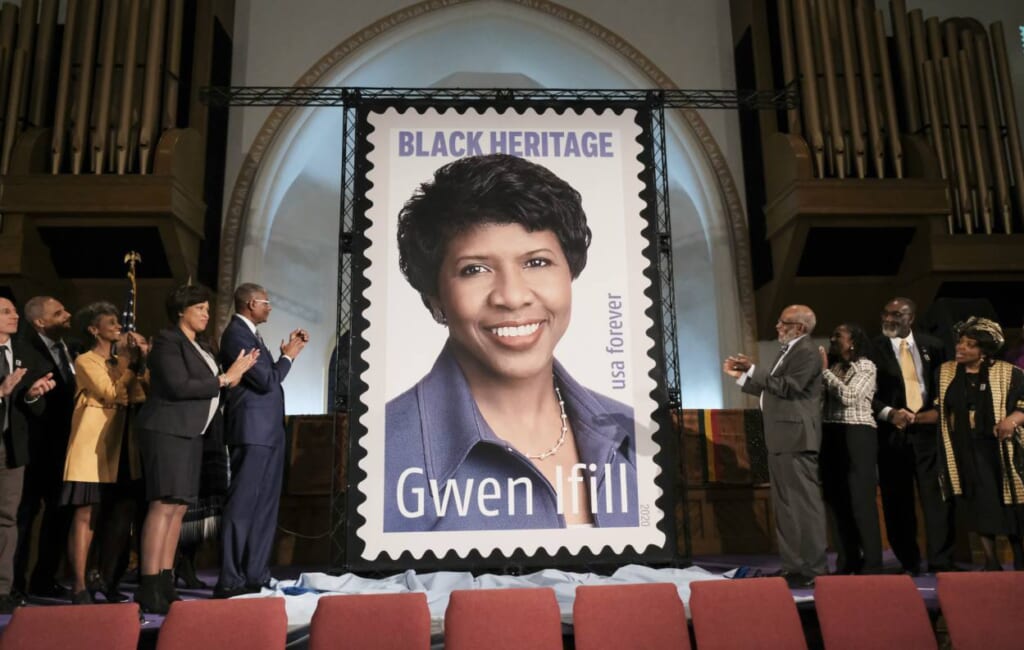
READ MORE: USPS releases commemorative stamp honoring trailblazing journalist Gwen Ifill
As the coronavirus continues to decimate industries and American unemployment has reached levels more than in the Great Depression – 16.8 million Americans have filed for unemployment so far – the loss of a critical public service and its jobs could be catastrophic.
The postal service is also considered essential to voting by mail, which is likely to be utilized more given the social distancing mandates of the coronavirus. There is no way to know right now how much of an impact that will have come November, but it is a concern.
It is also essential to seniors, many of who receive disability and Social Security checks by “snail mail”. Freelancers, contractors and gig workers who often don’t have the option to be paid via direct deposit also benefit from the service.
The post Postal Service running ‘out of cash’ and that may hurt African Americans appeared first on TheGrio.
from TheGrio https://ift.tt/34reGPz
via
Biden needs more than a John Lewis endorsement to win young Black voters
Georgia Congressman John Lewis recently endorsed the Democratic Party presidential hopeful and Former Vice President Joe Biden. I was on the 18-minute reporters call early Tuesday evening when the congressman emphatically endorsed Biden as “a friend, a dear friend.”
The Democratic congressman then went on to praise Biden’s courage, conscience, and faith, asserting that the former VP would be a great president and lead our country to a “better place.”
READ MORE: Civil rights icon Rep. John Lewis endorses Joe Biden for president
Lewis, 80, was first elected to the House of Representatives in 1986 and is currently serving his 17th term in congress. The civil rights icon has also served in leadership roles in the Georgia delegation and as the House of Representatives chief deputy whip since 1991 and senior chief deputy whip since 2003.
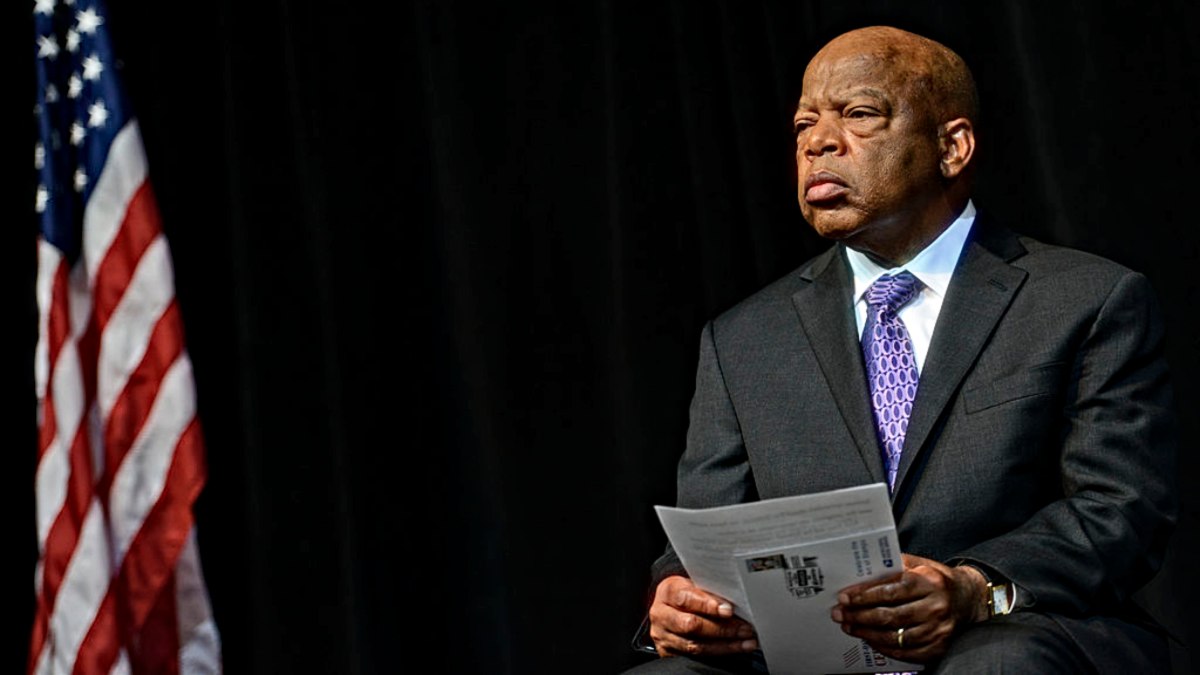
No one can deny Lewis’ dedication to civil rights and his place in American history. Lewis, served as chairman of the Student Nonviolent Coordinating Committee (SNCC) and assisted in organizing the 1963 March on Washington. Lewis consistently played key roles in the Civil Rights Movement, most notably the march in Selma and the subsequent actions that led to the end of legalized racial segregation in the United States.
It is no surprise Biden sought Lewis’ endorsement for his quest for the presidency. After South Carolina Rep. James Clyburn helped deliver a historic primary win for Biden on Super Tuesday, Biden’s courting of senior Black elected officials has been a key strategy on his road to the White House.

READ MORE: What Joe Biden understood about Black voters that Bernie Sanders didn’t
Black voters are indeed the backbone of the Democratic Party and I am not begrudging Biden’s strategy. Unlike the now-former presidential candidate, Bernie Sanders, who chose to largely circumvent Black voters as an electoral strategy, Biden actually does see the value of speaking directly to Black voters and Black elected officials.
However, Biden’s Achille’s heel seems to be his lack of understanding of the necessity in aggressively courting younger Black voters as well.
What has made the Biden blind spot so palpable was Lewis’ answer when asked specifically about including younger Black voters into the Biden electoral strategy. Lewis recalled the many efforts and sacrifices made by leaders in the civil rights struggles, as well as the blood he shed on the Edmond Pettus Bridge.
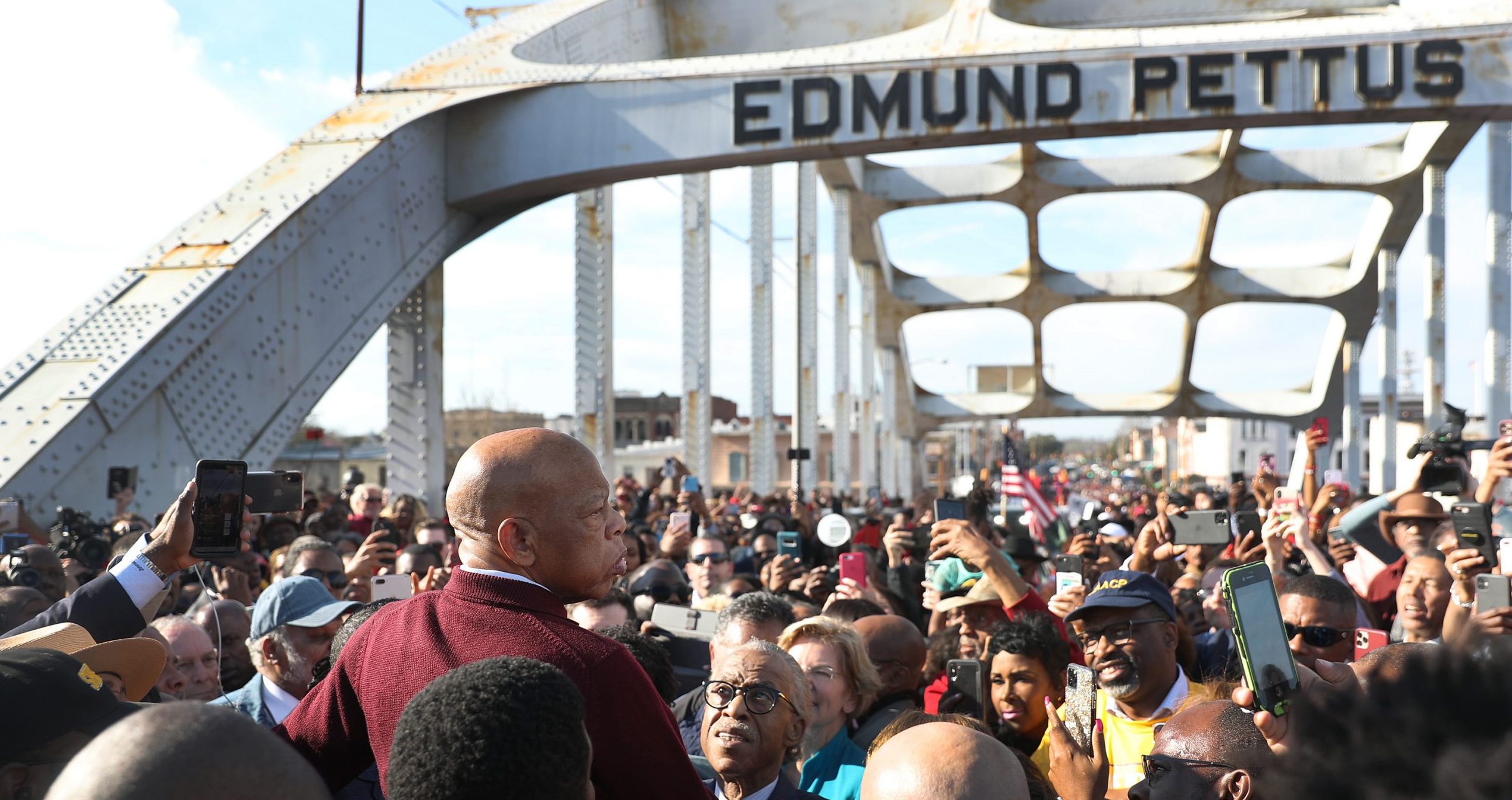
He told reporters that “I would tell young people the story of Selma and Montgomery and Mississippi…If we fail to vote, we don’t count. The vote is the most powerful nonviolent tool we have in a democratic society. And we must use it.”
The efforts and sacrifices of Lewis should not be forgotten, but electoral data clearly illustrates the simple fact that younger Black voters are not necessarily motivated by past acts of elected and civil rights leaders.
READ MORE: Who should Joe Biden pick as his VP running mate? (Hint, it should be a Black woman)
Electoral data on local, state, and national levels shows that although younger Black voters are politically astute and have clearly defined opinions on a myriad of policy issues, by and large, Biden does not speak directly to their policy interests nor do they specifically address younger Black votes as a significant voting block.
It is apparent that older Black votes are dedicated loyalists to the Democratic Party, largely because the Republican party has chosen to cast much or most of its lot behind a white nationalist agenda. Black voters are in many ways captive to the Democratic Party, which makes their evaluation of candidates an intricately strategic endeavor.
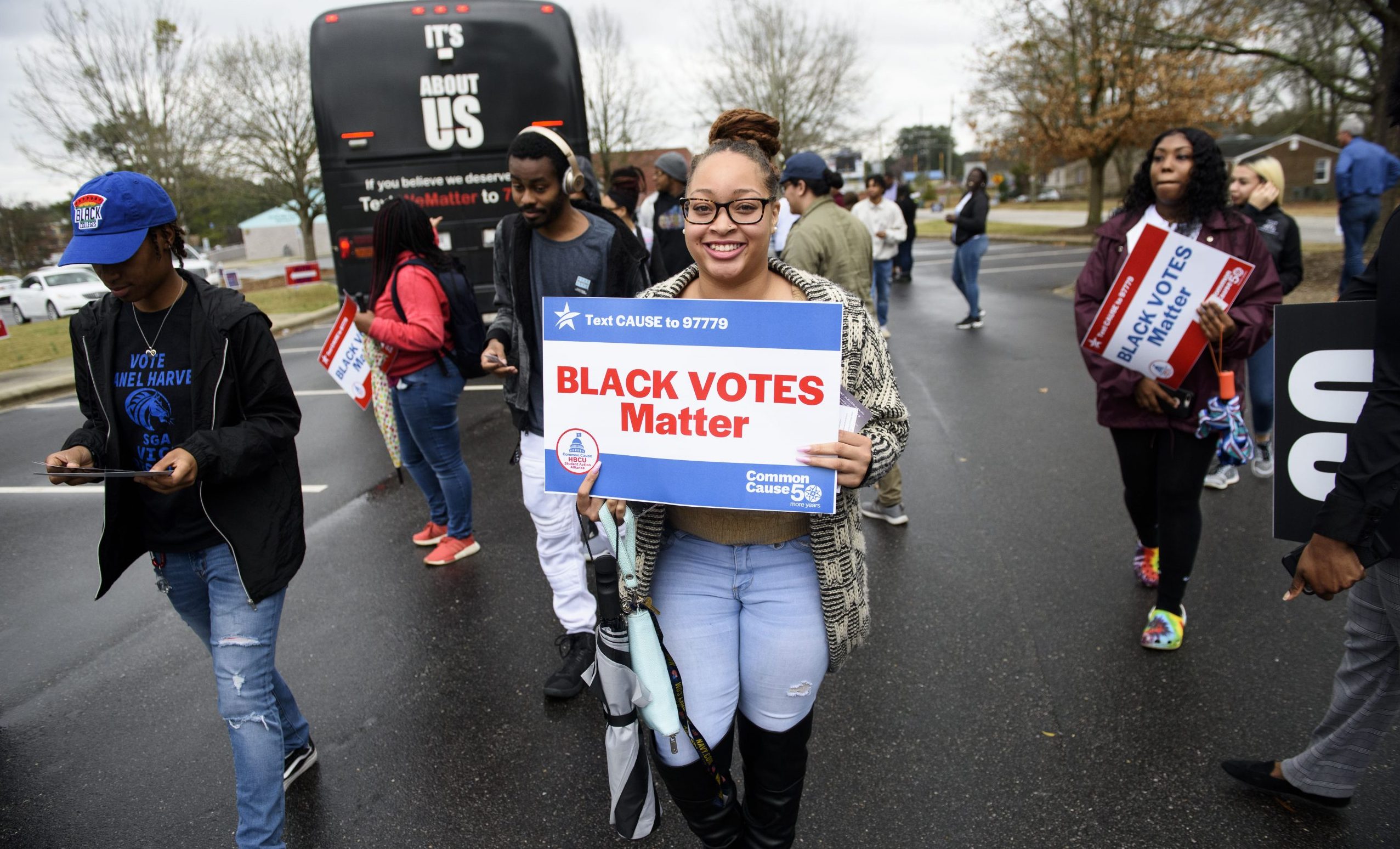
Younger Black voters, however, do not appear to view themselves as captives. Many do not feel obligated to vote for “the lesser of two evils” and have stayed at home when presented with less than ideal options. Electoral results have shown a distinct autonomy when assessing the participation of young Black voters.
To merely think young Black voters will turn out to vote for Biden because John Lewis urges them to remember civil rights struggles instead of present-day, concrete policy prescriptions of the Democratic nominee is a faulty premise. Unfortunately, it is a premise for far too many candidates running for local and state offices across the nation.
READ MORE: Jim Clyburn called Joe Biden an ‘honorary Black man’ according to Cory Booker
Knowing that voter disenfranchisement will be rampant in a (hopefully) post-COVID-19 November election season, if Biden wants to maximize younger Black electoral participation he will need to understand the value of Congressman Lewis’ contributions and translate those struggles into specific policies that speak directly to younger Black voters.
Knowing that Biden is a friend, even a dear friend will not be enough. If Biden hopes to move to 1600 Pennsylvania Avenue, his bags will be packed by the efforts of young Black voters. If a more specific policy agenda is not presented to young Black voters … and soon, Biden will only be moving to the annals of history as the loyal vice president to the first Black president in U.S. history.
 Christina Greer is the politics editor at The Grio, an associate professor of political science at Fordham University, and the author of “Black Ethnics: Race, immigration, and the pursuit of the American Dream”.
Christina Greer is the politics editor at The Grio, an associate professor of political science at Fordham University, and the author of “Black Ethnics: Race, immigration, and the pursuit of the American Dream”.
The post Biden needs more than a John Lewis endorsement to win young Black voters appeared first on TheGrio.
from TheGrio https://ift.tt/2JXAVTW
via
Chicago Mayor Lori Lightfoot drove around the city to enforce stay at home order
Earlier this month Chicago mayor Lori Lightfoot went viral in a series of internet memes. Now the notoriously tenacious public official is making headlines once again for her unorthodox tactics to keep local residents off the street during the current stay-at-home mandate.
According to the Chicago Tribune, during a press conference Wednesday, the no-nonsense lawmaker reminded citizens to stay home and then shared an anecdote about how the day before she opted to personally drive around the city, telling people standing in crowds to be more mindful of social distancing to avoid spreading COVID-19.
READ MORE: Health Dept. confirms all 12 COVID-19 deaths in St. Louis were Black
“I personally drove around yesterday, and I was up on the North Side, in the 50th Ward, and I’ll continue to do that,” Lightfoot recalled. “I told people that I saw gathering in clusters not abiding by the social distancing rules to break it up. Yes. And I’ll continue to do that.
“I mean what I say: We have to protect ourselves. We have to be smart about what we’re doing in the course of this pandemic. And if it means that I drive around and check whether people are in compliance, I’m happy to do it.”
READ MORE: Sint Maarten prime minister’s ‘stop moving’ coronavirus order goes viral
Chicago Mayor Lori Lightfoot is personally going around the city breaking up social gatherings – https://t.co/xsXt2RfNIV
— Reid Wilson (@PoliticsReid) April 10, 2020
“Most people do a double-take and are like, wait, is that the mayor? And then as we roll away, you’ll hear somebody saying, ‘Hey, that was the mayor. Hey, that was Lori Lightfoot,'” she said in the interview with Connected to Chicago.
“The other night I think we literally broke up an underage drinking party. There were some young folks that were in a garage with the door up, it was a beautiful night, we pulled by and I told the driver, ‘Back up,’ rolled down the window and said, ‘Hey, you’re too close. Separate yourself. Social distancing!’” Lightfoot recalled. “And we heard one person, I won’t repeat the expletive but they said, ‘Oh,’ and you can figure it out. So we had a little fun with it.”
READ MORE: 41 MTA employees in New York City have died of coronavirus
View this post on InstagramA post shared by Mayor Lori Lightfoot (@chicagosmayor) on
However some thought the mayor’s actions a little contradictory as she got a haircut during the mandate, defending it as part of her duty to look appropriate as a public servant.
The post Chicago Mayor Lori Lightfoot drove around the city to enforce stay at home order appeared first on TheGrio.
from TheGrio https://ift.tt/2xk6uED
via
Modified Sleep Apnea Machines May Ease the Ventilator Crunch
15,000 Hotels Are Offering Rooms for Healthcare Workers And Those in Quarantine

Despite their business coming to a screeching halt, hotels are doing their part to combat the ongoing coronavirus pandemic.
On Monday, the American Hotel and Lodging Association (AHLA) announced that more than 15,000 hotels have joined the “Hospitality for Hope” initiative, which connects healthcare professionals to hotel chains and independent properties that are offering rooms as temporary housing. Through the program, emergency and healthcare workers will be connected to 2.3 million rooms located in close proximity to established healthcare facilities around the country. In addition, some of the hotels will be turned into emergency hospitals or spaces called “Alternative Care Sites” for those who are quarantined.
“It has been so impressive to see hotel after hotel join this important initiative as a way of giving back to the communities in which they operate,” said Chip Rogers, AHLA president and CEO, in a statement. “As an industry of people taking care of people, the hotel industry is uniquely positioned to support our communities by caring for the first responders who are on the frontlines of this public health crisis.”
As a result, healthcare professionals, relief workers, and first responders will be able to find lodging to reduce their commute to and from work and protect their families from possibly being exposed to the novel virus.
To streamline the process, the AHLA is working to create a national “Hospitality for Hope” database to assist the U.S. Department of Health and Human Services and help properties connect with federal, state, and local governments.
“The number of hotels wanting to be part of the program is growing by the hour,” Michael Jacobson, CEO and president of the Illinois Hotel & Lodging Association said. “Our hotels are answering the call to action, and they want to be helpful to the city and the state.”
Last week, Airbnb announced that it will offer free or subsidized housing to 100,000 healthcare workers on the front lines in the battle to stop the spread of COVID-19.
from Black Enterprise https://ift.tt/2VlQ5aP
via
Coronavirus over Easter: Gospel singer Evelyn Wanjiru leads worship online
New Orleans Arts Organizations Establish an Emergency Relief Fund to Support Artists Impacted By COVID-19

COVID-19, or the novel coronavirus pandemic, has caused an economic fallout that some say rivals the Great Depression with a record number of people filing for unemployment due to hundreds of thousands of jobs being lost as a result. The public health crisis has been particularly difficult for those working in the arts industry who are prohibited from holding public gatherings larger than 10 people under federal and state bans. Cities like New Orleans are fighting to save its arts community under the pandemic and now local arts organizations are coming forward.
Antenna, Ashe Cultural Arts Center, Junebug Productions, and The Weavers Fellowship have come together to create an emergency relief fund to help local artists in the city who have been impacted by the coronavirus. The move is a part of a larger initiative called the Creative Response to support creators impacted by the public health crisis. The fund will offer emergency grants of $2,000 to local creators as well as distribute art and activity kits to New Orleans youth.
“While there would never be a welcome moment for such a crisis, the COVID-19 pandemic has impacted the city of New Orleans during the busiest time of the year for local economic activity in the arts—during festival season—and thus has hit local creators at a particularly vulnerable moment,” said Bob Snead, Antenna executive director. “As a result, this rapid response initiative is designed to provide direct economic support and opportunities to creators including grants and gig-work, alongside the distribution of art and activity kits for young people to do while they are at home in the midst of the crisis, all while aiming to be an outlet and source of inspiration —reminding us all of the resiliency of the creative spirit.”
from Black Enterprise https://ift.tt/2wyfg1w
via
Caf using break to settle referee payments backlog
The History of Pandemics Teaches Us Only That We Can't Be Taught
Does Vaping Raise Your Risk of Covid-19 Symptoms?
The 5 Best VR Headsets (2020): Oculus Quest, Rift S, and More
Short Fiction: ‘Rules of Special Measures’ by Ben Fountain
Why does Black America have more COVID-19 deaths? Racism.
The expression of “When white America gets a cold, Black America gets the flu” has always rung true, but for many people, rarely has it resounded as significantly as it has during the coronavirus pandemic.
This expression has shifted from words to reality, time and again, with stark disparities in education, housing, voting, employment, healthcare, and the criminal legal system.
The flu became even more pronounced when two Black men were kicked out of a Nashville Walmart for wearing protective masks — a recommendation by the Centers for Disease Control and Prevention (and mandated in some cities and states) to slow the spread of this public health crisis.
READ MORE: Black men told to leave Walmart for wearing masks
And with recent race-based data showing the percentages of infections and deaths in communities of color compared with those who test positive or die from COVID-19 in white communities, a troubling truth has emerged: structural racism has turned the flu into a death sentence for many Black Americans.

Recently, Senator Elizabeth Warren and Representative Ayanna Pressley urged the U.S. Department of Health and Human Services to collect and publish racial demographics of the people who are being tested for, infected with, hospitalized with, or killed by COVID-19. Local leaders and editorial boards like the Baltimore Sun are pushing for the same.
The data we now have is clear: Black Americans are dying more from COVID-19 than any other population.
READ MORE: Coronavirus is hitting Black America at a staggering rate
In Chicago, even though the city’s population is just 30 percent Black, a recent report found that 70 percent of people who died from the virus are Black. Detroit, where Black people make up 80 percent of the city’s population, has significantly increased Michigan’s overall death rate by 40 percent. In Milwaukee County, which is just 27 percent Black, 81 percent of those who test positive are Black.
The picture in the South is no less grim. In Louisiana, Black people comprise more than 70 percent of COVID-19 deaths in a state that is approximately one-third Black. Roughly 33 percent of the state’s 512 deaths have occurred in Orleans Parish where Black people make up more than 60 percent of the population. Public health officials tracking the coronavirus have seen similarly disproportionate impacts on Black Americans in other cities and states.
That’s not because of race, but racism. The distinction matters.
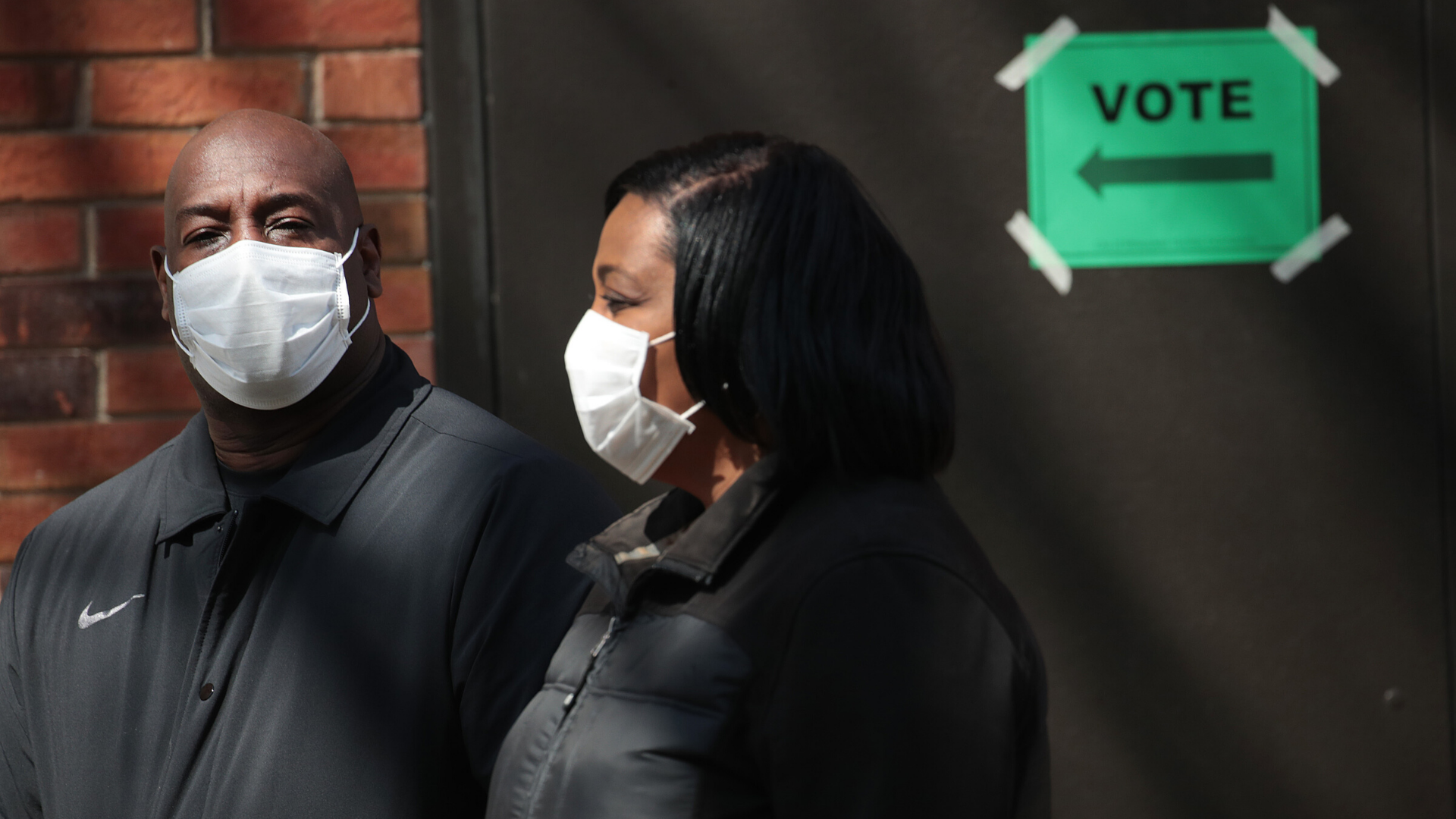
READ MORE: Lousiana’s COVID-19 deaths were 70 percent Black residents
If we’d let social media tell it, young Black people are testing positive compared to other communities because we are socially distancing less in an effort to have fun with our friends and loved ones. While this may be true for a very small subset, this argument goes out the window when we understand the mental, physical, and emotional harm inflicted by structural racism — especially in healthcare.
Black communities are not intentionally socially distancing less than other communities. Those who work essential jobs or are in the gig economy are disproportionately Black. For these communities, social distance is a privilege reserved only for those who can do so while still earning a living.
Essential workers put their lives on the line and are often unpaid. They are not just nurses, doctors, and firefighters — they are also janitors, home health aides and social workers, Uber and Lyft drivers, grocery store employees, fast food workers, and package handlers. These jobs require more in-person contact. In most cities, low-wage and essential workers are people of color and are particularly susceptible to the devastating health impacts of COVID-19.
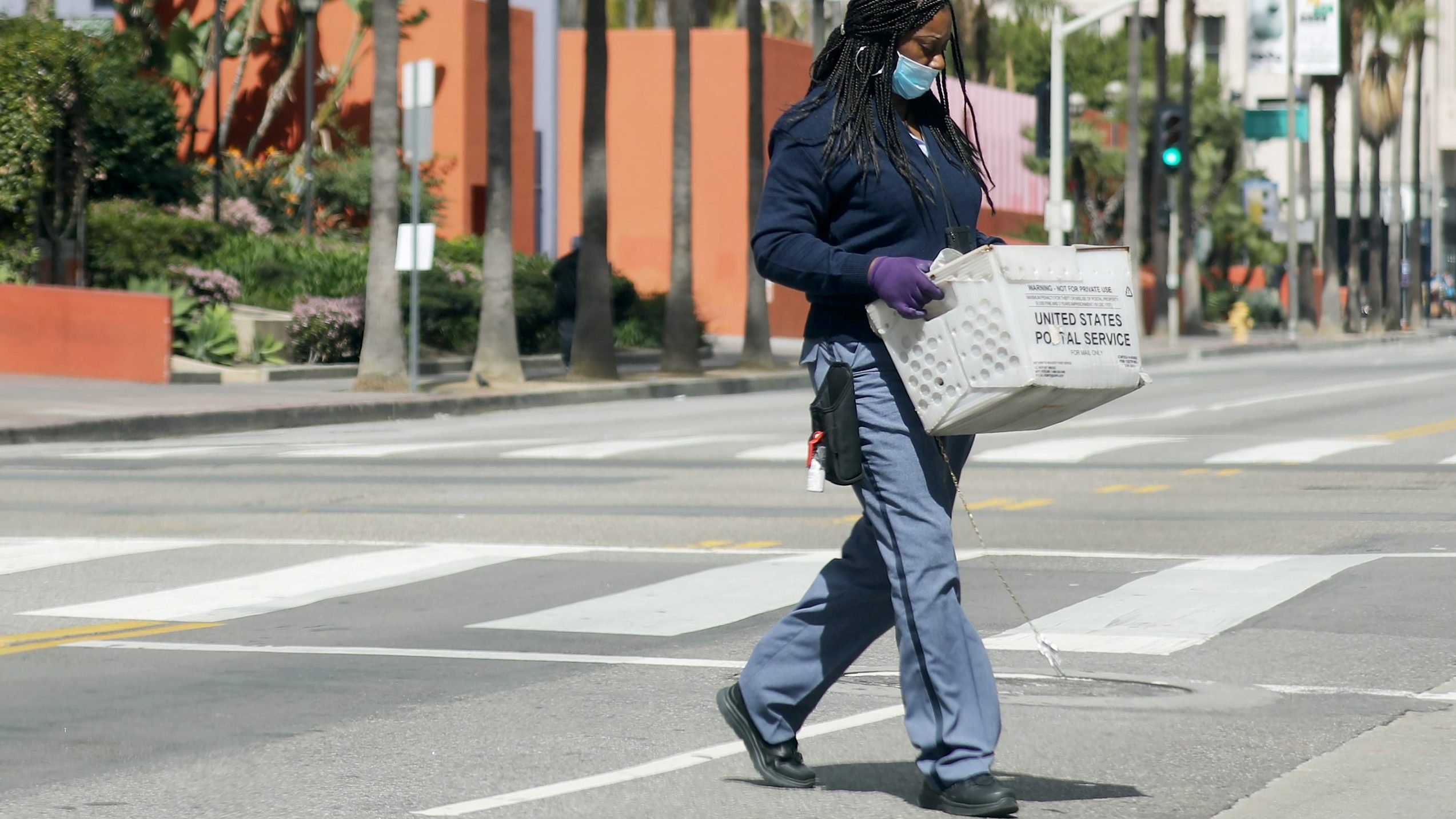
Black communities (and Black queer families, especially) live in the south where states have not expanded Medicaid access. This dramatically impacts our access to health care. According to Kaiser Family Foundation, “the South has relatively higher numbers of poor, uninsured adults than in other regions, has higher uninsured rates, and more limited Medicaid eligibility than other regions, and accounts for the majority (9 out of 14) of states that opted not to expand Medicaid.”
READ MORE: LGBTQ community uniquely impacted by COVID-19, research shows
As a result, more than 9 in 10 people that fall within the coverage gap reside in the south.
Experts also underscore initial research showing a high prevalence of COVID-19 among those experiencing pre-existing conditions. Studies have shown this is largely due to the fact that people of color often live in food deserts and receive lower quality life-saving and preventive medical care.
This is to say nothing of the rampant environmental racism; unemployment and underemployment; housing instability, and criminalization that Black communities have experienced for generations. A global health pandemic coupled with a haphazard healthcare system creates a perfect storm for structural racism to exact its deadly toll.
As Dr. Anthony Fauci, the global health expert who sits on Trump’s coronavirus task force, made it clear at the White House press conference on Tuesday: “It’s not that (Black Americans) are getting infected more often, it’s that, when they do get infected, their underlying medical conditions…wind them up in the ICU.
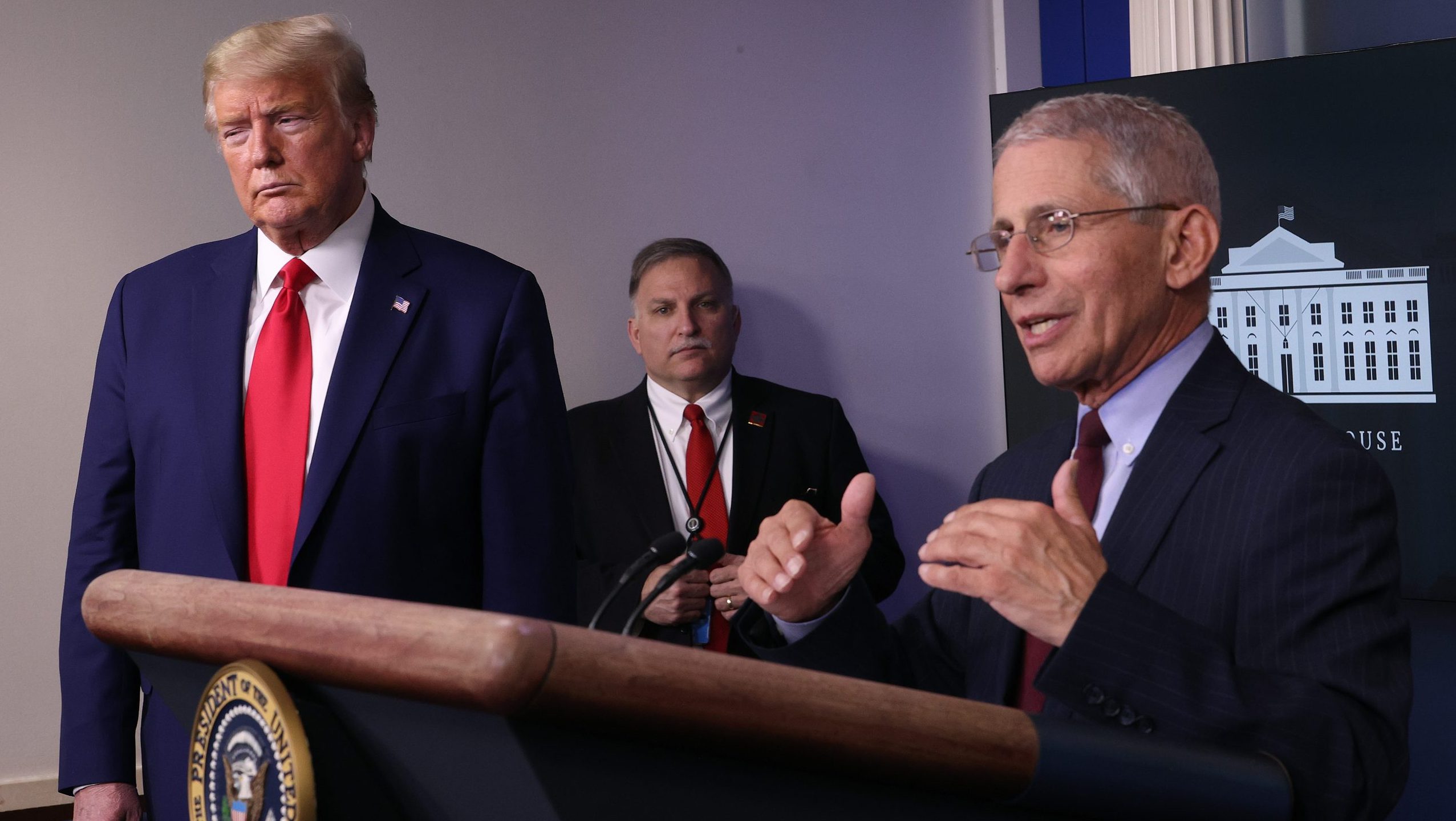
He added, “Public health officials have known that conditions such as diabetes, hypertension, and asthma disproportionately affect African Americans. Unfortunately, when you look at the predisposing conditions that lead to a bad outcome with coronavirus, the things that get people into ICUs that require incubation that often lead to death, they are just those very comorbidities.”
These problems are particularly pronounced at the intersection of race, gender, sexual orientation, gender identity, and poverty as we know LGBTQ+ people of color are more likely to lack health insurance coverage, have asthma, smoke cigarettes, live in poverty, and be criminalized. Each factor has an impact on contracting COVID-19.
As such, local and state governments must consider proactive policy solutions, not carceral practices that instill fear and panic. As mayors and governors issue stay-at-home orders, many have attached criminal penalties on those who do not comply and the severity of enforcing these is quite alarming.
From Kansas City, Missouri’s stay-at-home order to Mecklenburg County, North Carolina’s joint proclamation to the order in my current home in Maryland, lawmakers in each have proposed or warned of a fine, misdemeanor charge, or other criminal penalties for those who violate stay-at-home orders.
Concerns around enforcement are particularly salient for Black Americans, other people of color, and other system-impacted communities (e.g. incarcerated folks, LGBTQ+ people, and sex workers) that have experienced overcriminalization and arrests as the primary response to substance use and mental health emergencies, among other health issues.
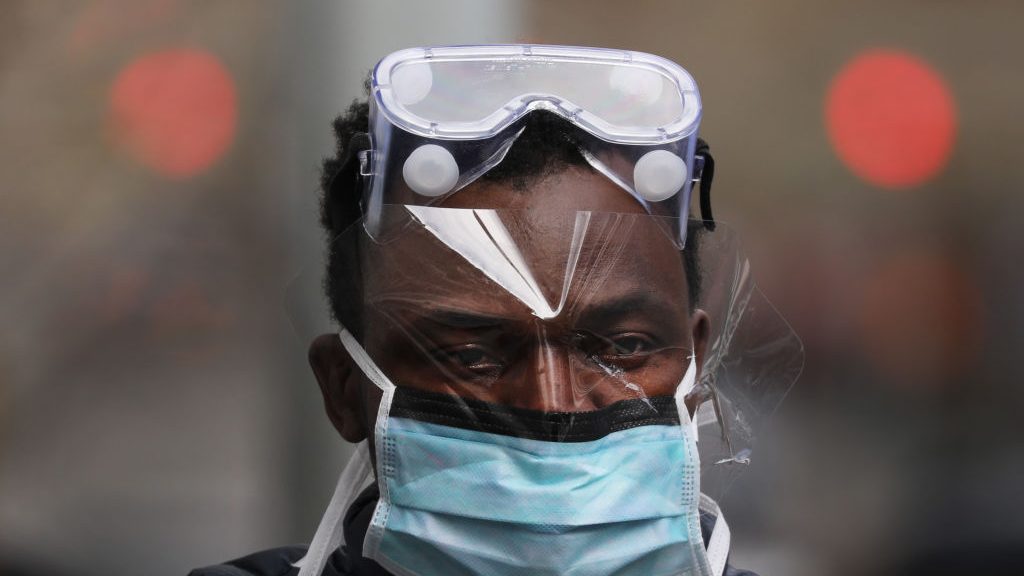
Criminalization itself is a public health crisis and is deeply rooted in the fabric of the United States. Calling law enforcement on people who violate stay-at-home orders — intentionally or not — is not a solution. Arresting and jailing people from marginalized communities will not flatten COVID-19’s curve. Instead, it will put people who are at high risk together and will only serve to spread the virus further.
COVID-19 has displayed a very bright light on the structural racism Black Americans have experienced for centuries. We desperately need to get to the root of the public health disparities we see every day in communities of color — especially in Black communities.
Because once the COVID-19 curve is flattened, young folks from Black communities will still face the same unnecessary barriers to quality health care that sickened and — in many cases — killed their parents and grandparents.
Without reforming these structures, the burden will continue to fall to individuals who must work with incredibly limited resources and little support to find a cure for a deadly flu caused by their own country’s institutions.

Preston Mitchum is the Director of Policy with URGE: Unite for Reproductive & Gender Equity. URGE is a multistate reproductive justice organization powered by young people in the South and Midwest.
The post Why does Black America have more COVID-19 deaths? Racism. appeared first on TheGrio.
from TheGrio https://ift.tt/3aXhZjS
via
